Mastering Debt Repayment – Critical Strategies I Gained from a Credit Adviser. Find Out More In Our Latest Article!
THIS ARTICLE MAY CONTAIN AFFILIATE LINKS, MEANING I GET A COMMISSION IF YOU DECIDE TO MAKE A PURCHASE THROUGH MY LINKS AT NO COST TO YOU. PLEASE READ MY AFFILIATE DISCLOSURE FOR MORE INFO.
DON’T HAVE TIME TO READ THE FULL ARTICLE. HERE’S WHAT YOU ARE MISSING.
- Understanding Debt Repayment
- Setting Realistic Debt Repayment Goals
- Effective Debt Repayment Strategies
- Consolidation and Refinancing
- Budgeting for Debt Repayment
- Negotiating with Creditors
- Improving Credit Score During Repayment
- Avoiding Common Debt Repayment Mistakes
- Staying Motivated and Accountable
- Frequently Asked Questions
When it comes to managing debt, understanding effective repayment strategies is essential.
I discovered powerful techniques that can make a significant difference in achieving financial freedom.
By implementing these strategies, you can take control of your debt and pave the way to a more secure financial future.
Don’t let debt hold you back—empower yourself with knowledge and these proven methods to master your repayments today.
Take control of your financial future by learning proven techniques to manage and eliminate debt effectively.
While there is no one-size-fits-all answer, several strategies and tips help anyone on their debt repayment journey.
In this article, I will share some expert tips on mastering debt repayment.
Understanding debt repayment is crucial to creating an effective plan. Before you can start tackling your debt, you must understand how it works.
This includes knowing your debt types, the interest rates, and the minimum payments. Once you clearly understand your debt, you can start setting realistic debt repayment goals.
Setting realistic debt repayment goals is the key to success. It’s essential to set achievable and realistic goals, which will help you stay motivated and on track.
In the next section, I will share some effective debt repayment strategies to help you achieve your goals.
- Discover why understanding your debt is crucial to creating an effective repayment plan.
- Why setting realistic debt repayment goals is vital to staying motivated and on track.
- Which effective debt repayment strategies can help you achieve your goals and become debt-free?
Understanding Debt Repayment
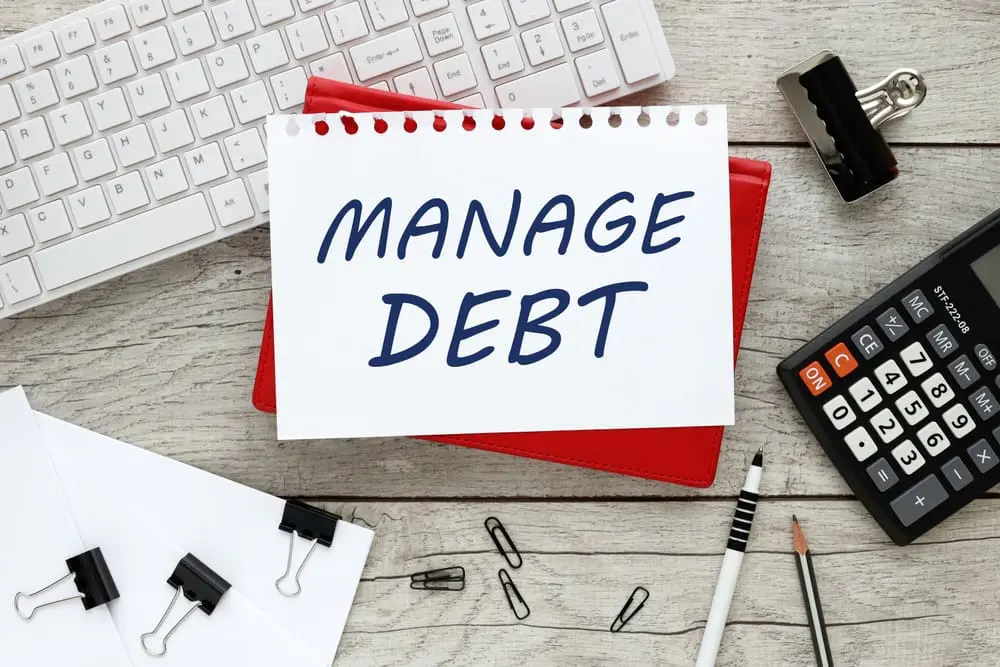
Debt repayment is paying off all outstanding debts owed to creditors. It is an essential step towards achieving financial stability and freedom. However, it can be daunting, especially when you have multiple debts to pay off.
In this section, I will provide you with some basic knowledge of debt repayment, which will help you make informed decisions about managing your debts.
Types of Debt
There are two types of debt: secured and unsecured debt.
Secured debt is backed by collateral, such as a house or a car. If you fail to repay the debt, the creditor has the right to seize the collateral. Examples of secured debt include mortgages and auto loans.
Unsecured debt, on the other hand, is not backed by collateral. Examples of unsecured debt include credit card debt, medical bills, and personal loans.
Understanding your debt types is essential, as this will determine the order in which you should pay them off. In general, it is recommended that you pay off high-interest debt first, such as credit card debt, as it can quickly accumulate and become unmanageable.
Debt Repayment Psychology
Debt repayment is not just about numbers and calculations; it also involves psychology. Understanding your spending habits and how they contribute to your debt is essential. For example, if you tend to overspend on unnecessary items, developing a budget and sticking to it may be helpful.
Another important aspect of debt repayment psychology is staying motivated. Paying off debt can be long and complex, making it easy to become discouraged.
Celebrating small victories along the way, such as paying off a credit card or making an extra payment on a loan, is essential. This will help you stay motivated and on track to achieving your financial goals.
In the next section, I will provide some expert tips on effectively paying off your debts.
Setting Realistic Debt Repayment Goals
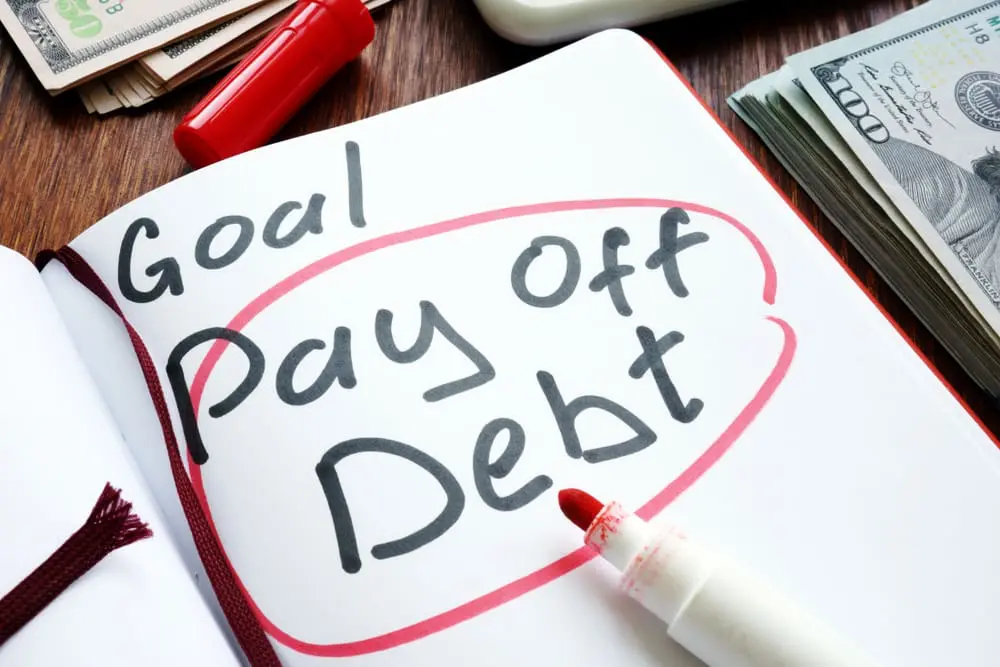
As a credit adviser, I have observed that one of the most essential steps in mastering debt repayment is setting realistic goals. It’s easy to get lost in the process and become discouraged without clear objectives. Having well-defined goals can help you stay focused and motivated throughout your journey to financial stability.
Tips to help you set practical goals for your debt repayment journey:
1. Determine Your Total Debt
Before setting any debt repayment goals, it’s essential to determine the total amount of debt you owe. This includes credit card debt, student loans, car loans, and other outstanding debts. Once you have a clear picture of your total debt, you can set realistic goals for paying it off.
2. Prioritize Your Debts
Not all debts are created equal. Some have higher interest rates or more severe consequences for non-payment. It’s essential to prioritize your debts based on these factors. For example, credit card debt typically has a higher interest rate than a car loan, so it may make sense to prioritize paying off credit card debt first.
3. Set Specific Goals
When setting debt repayment goals, it’s essential to be specific. Rather than simply saying, “I want to pay off my debt,” set a particular goal, such as “I want to pay off $10,000 of credit card debt within the next 12 months.” This will give you a clear target to work towards and help keep you motivated.
4. Make a Plan
Once you have set specific debt repayment goals, making a plan for achieving them is essential. This may involve creating a budget, cutting expenses, or increasing your income. Whatever your plan may be, make sure it is realistic and achievable.
5. Track Your Progress
It’s essential to track your progress toward your debt repayment goals. This will help you stay motivated and adjust your plan if necessary. Consider using a debt repayment tracker or spreadsheet to monitor your progress.
Following these tips can help you set realistic debt repayment goals and work towards becoming debt-free. Remember, debt repayment is a journey, and staying focused and motivated is essential.
Effective Debt Repayment Strategies
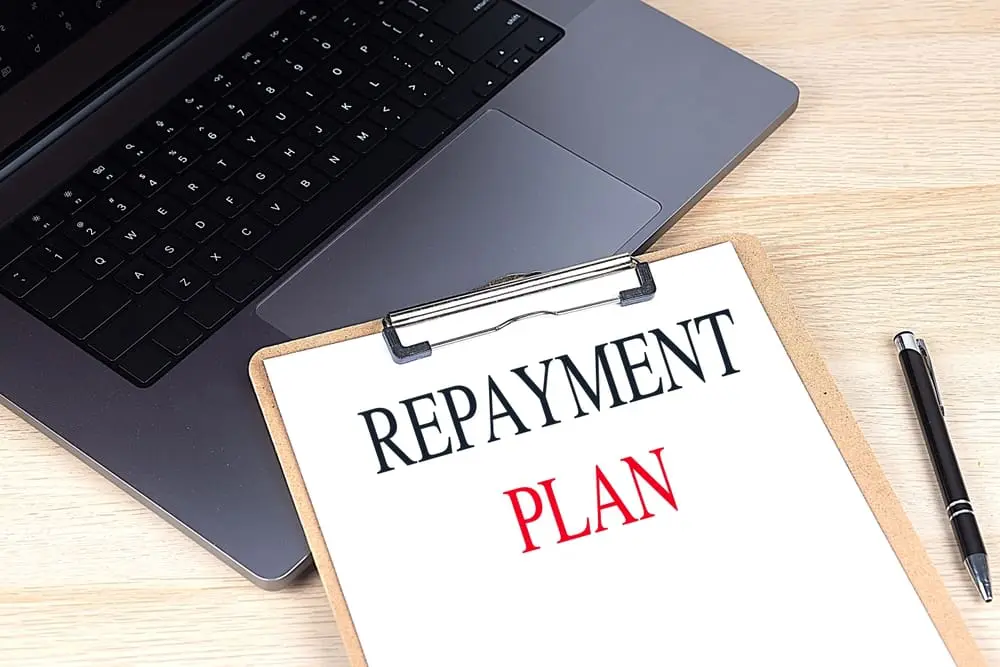
Numerous individuals have used effective debt repayment strategies. Here are some of the most successful methods that I recommend:
Debt Snowball Method
The debt snowball method involves paying off your smallest debts first while making minimum payments on more significant debts. Once the smallest debt is paid off, you move on to the next smallest debt, and so on. This method can be very effective because it provides a sense of accomplishment and momentum as you pay off each debt.
Here’s an example of how the debt snowball method works:
| Debt | Balance | Minimum Payment |
| Credit Card A | $1,000 | $50 |
| Credit Card B | $3,000 | $100 |
| Car Loan | $10,000 | $300 |
| Mortgage | $200,000 | $1,500 |
In this example, you would first focus on paying off Credit Card A while making minimum payments on the other debts. Once Credit Card A is paid off, you would move on to Credit Card B, and so on.
Debt Avalanche Method
The debt avalanche method involves paying off debts from the highest to the lowest interest rates. This method can be very effective because it minimizes the interest you pay over time.
Here’s an example of how the debt avalanche method works:
| Debt | Balance | Interest Rate | Minimum Payment |
| Credit Card A | $1,000 | 20% | $50 |
| Credit Card B | $3,000 | 15% | $100 |
| Car Loan | $10,000 | 5% | $300 |
| Mortgage | $200,000 | 4% | $1,500 |
In this example, you would first focus on paying off Credit Card A because it has the highest interest rate. Once Credit Card A is paid off, you would move on to Credit Card B, and so on.
Consolidation and Refinancing
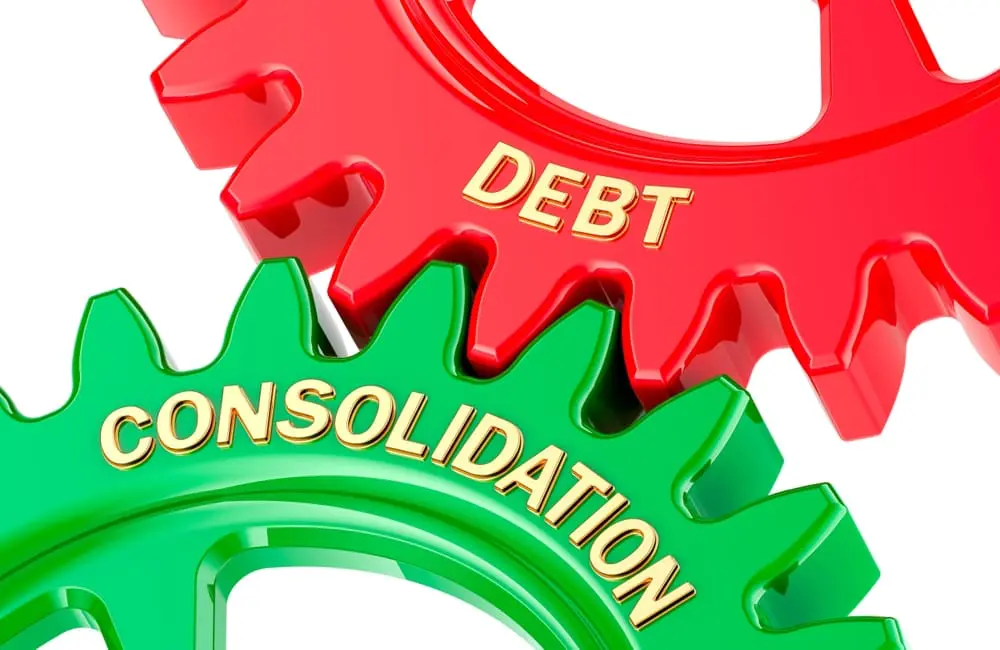
Consolidation and refinancing can be effective debt repayment strategies if you have high-interest debt. Consolidation involves combining multiple debts into one loan, usually with a lower interest rate. Refinancing consists in replacing a high-interest loan with a lower-interest loan.
Here are some things to consider when deciding whether consolidation or refinancing is right for you:
- What is your current interest rate?
- What is your credit score?
- What fees are associated with consolidation or refinancing?
- Will you save money in the long run?
Effective debt repayment strategies involve creating a plan, sticking to a budget, and being disciplined about making payments. You can take control of your debt and achieve financial freedom by using the debt snowball, debt avalanche, or consolidation and refinancing methods.
Budgeting for Debt Repayment

As a credit adviser, I have observed many individuals facing difficulties with debt repayment. One effective strategy for addressing debt is to create a budget.
A budget helps you understand your income and expenses and enables you to identify areas where you can reduce your spending.
Creating a Budget
To create a budget, start by listing all your sources of income, including your salary, bonuses, and any other income streams. Next, list all your expenses, including rent, utilities, groceries, transportation, and other recurring expenses. Once you have a clear picture of your income and expenses, you can determine how much money you have left over each month to put towards debt repayment.
When creating your budget, include a line item for debt repayment. This will ensure that you are making progress toward your debt repayment goals each month. If you don’t have enough money to repay your debt, you may need to look for ways to cut back on expenses. Create A Simple Budget. Ultimate Quick Start Guide to Budgeting In Five Easy Steps.
Budgeting Tools and Software
There are many budgeting tools and software available that can help you create and manage your budget. Some popular options include Empower, YNAB, and EveryDollar. These tools can help you track your spending, set financial goals, and monitor your progress.
When choosing a budgeting tool or software, look for one that is easy to use and fits your needs. Some tools are more geared toward tracking expenses, while others focus more on debt repayment. Take some time to research your options and find the one that works best for you.
Creating a budget is essential for effective debt repayment. By understanding your income and expenses, you can identify areas where you can cut back on spending and put more money toward debt repayment. Consider using a budgeting tool or software to help you create and manage your budget.
Negotiating with Creditors
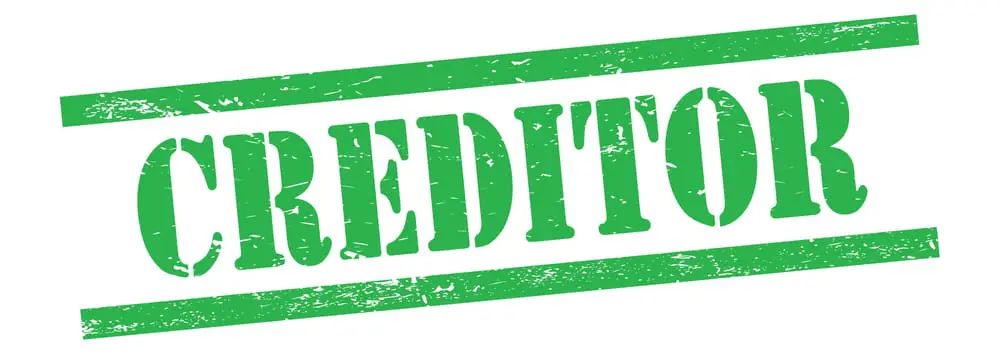
Most financial advisors advise individuals to negotiate with their creditors before their credit gets out of hand, control their debt, and lower the amount due. However, knowing when to intervene and what techniques to use to get the best results is essential.
When to Negotiate
Negotiating with creditors is best when facing financial hardship and unable to make payments. If you have missed payments or are behind on bills, it may be time to start negotiating with your creditors.
It’s important to note that not all creditors are willing to negotiate, so it’s best to start with those who are more likely to work with you. For example, credit card companies may be more willing to negotiate than mortgage lenders.
Negotiation Techniques
A few techniques can help you negotiate with creditors effectively. One method is to be honest and direct about your financial situation. Let your creditors know you are struggling to make payments and need their help.
Another technique is to offer a lump sum payment in exchange for a lower overall amount due. This can be especially effective if you can provide a significant amount upfront.
Finally, it’s essential to be persistent when negotiating with creditors. Don’t give up if they reject your initial offer. Keep trying and be willing to compromise to reach a mutually beneficial agreement.
Negotiating with creditors can be challenging, but it’s often worthwhile. By following these tips and techniques, you can take control of your debt and work towards a brighter financial future.
Improving Credit Score During Repayment
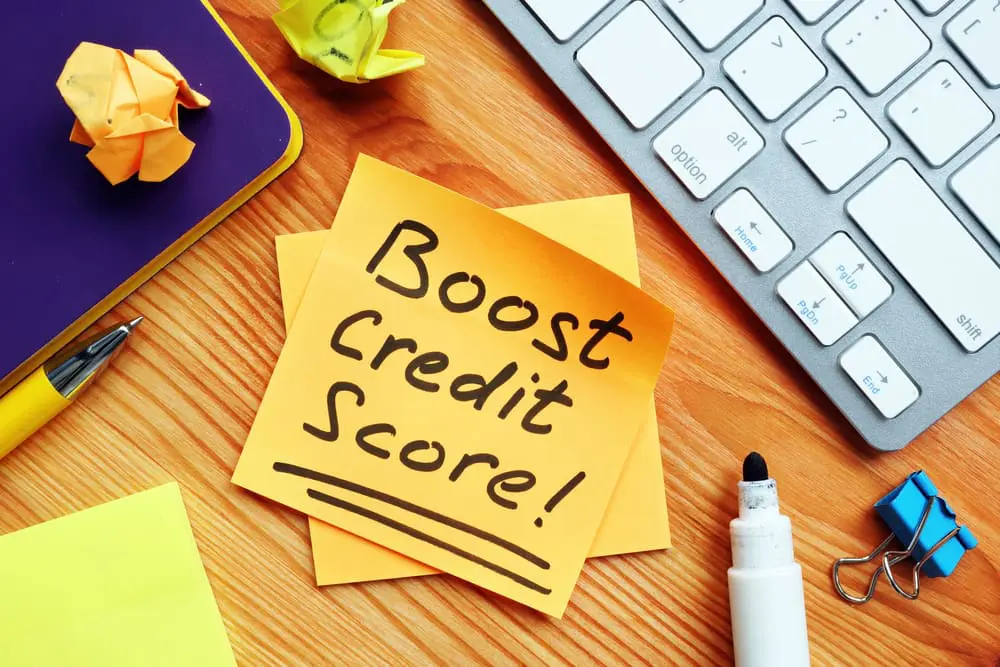
As a credit adviser, I frequently receive questions about how to improve credit scores while managing debt. Here are some effective tips and strategies that have helped individuals.
Credit Report Review
The first step in improving your credit score is to review your credit report for errors. You can get a free copy of your credit report from each credit bureau weekly or once a year at AnnualCreditReport.com. Check for any inaccuracies, such as incorrect balances or accounts that don’t belong to you. Dispute any legitimate errors that can be verified with the credit bureau and the creditor reporting the information.
Another way to improve your credit score is to ensure all your accounts are in good standing. Late payments, collections, and charge-offs can all hurt your credit score. If you have any delinquent accounts, bring them up to a current status immediately.
Credit Building Strategies
Once you have reviewed and corrected any errors in your credit report, you can start building your credit score. Here are some strategies that can help:
- Pay your bills on time. On-time payments are the most critical factor in your credit score. Set up automatic payments or reminders to ensure you never miss a payment.
- Keep your credit utilization low. Your credit utilization is the amount of credit you use compared to your credit limit. Aim to keep it below 30%.
- Diversify your credit mix: A mix of credit accounts, such as credit cards, loans, and mortgages, can help improve your credit score. However, don’t open new accounts just to improve your credit mix.
- Consider a secured credit card: If you have poor or no credit, a secured credit card can help you build credit. With a secured card, you make a deposit that serves as your credit limit. Use the card responsibly and pay it off monthly to build your credit.
- Avoid closing credit accounts: Closing a credit account can lower your available credit and hurt your credit utilization. Keep your accounts open and active, even if you’re not using them.
Improving your credit score takes time and effort, but it’s worth it. A higher credit score can lead to lower interest rates, better loan terms, and more financial opportunities.
By reviewing your credit report and following these credit-building strategies, you can master debt repayment and improve your credit score at the same time.
Avoiding Common Debt Repayment Mistakes

As a credit adviser, I have observed many individuals make mistakes when attempting to repay their debts. Here are some of the most common mistakes to avoid.
Mistake #1: Being Too Hard on Yourself
It’s essential to be realistic about your debt repayment goals. Being too hard on yourself can lead to burnout and frustration. Instead, set achievable goals and celebrate your progress along the way. Remember, every little bit counts!
Mistake #2: Not Having a Plan
One of the biggest mistakes people make is not having a plan for repaying their debts. Without a plan, it’s easy to get overwhelmed and give up. Take the time to create a budget and a repayment plan that works for you, and stick to it as best you can.
Mistake #3: Ignoring High-Interest Debt
High-interest debt, such as credit card debt, can quickly spiral out of control if you don’t address it. Ensure you’re paying off your high-interest debt first, as it will save you money in the long run.
Mistake #4: Not Asking for Help
Don’t be afraid to ask for help if you need it. A credit counselor or financial advisor can help you create a debt repayment plan and provide guidance. Additionally, they can help you negotiate with creditors and possibly even lower your interest rates.
By avoiding these common debt repayment mistakes, you can set yourself up for success and achieve your financial goals.
Staying Motivated and Accountable

As a credit adviser, I’ve seen that one of the biggest challenges of debt repayment is staying motivated and accountable. Here are some tips to help you stay on track:
Tracking Progress
Tracking your progress is essential for staying motivated. Create a spreadsheet or use a budgeting app to track your debt repayment progress. This will help you see how far you’ve come and how much farther you must go.
Celebrating your successes along the way is essential, no matter how small they may seem.
Using Support Systems
Another way to stay motivated is to use support systems. Talk to family and friends about your debt repayment goals. Join a debt repayment support group or find an accountability partner. Having someone to share your successes and struggles with can make a big difference.
Additionally, consider seeking help from a financial advisor. A financial advisor can help you create a debt repayment plan. They can also provide guidance and support as you work toward your goals.
Remember, staying motivated and accountable is critical to mastering debt repayment. You can stay on track and achieve your debt-free goals by tracking your progress and using support systems.
Frequently Asked Questions
What are the top three strategies for reducing personal debt?
Millennial Credit Advisers recommend the following three strategies for reducing personal debt:
- Prioritize high-interest debts: Pay off debts with the highest interest rates first. This will save you money in the long run by reducing the amount of interest you have to pay.
- Create a budget: A budget can help you identify areas for expense reduction and allocate more money to debt repayment.
- Consider debt consolidation: Consolidating your debts into one loan with a lower interest rate can make it easier to manage your debts and reduce the amount of interest you have to pay.
How can individuals with limited funds rapidly decrease their debt?
Individuals with limited funds can rapidly decrease their debt by:
- Increasing their income: Consider taking on a part-time job or selling unused items to increase your income.
- Negotiating with creditors: You may be able to negotiate a lower interest rate or a payment plan that fits your budget.
- Prioritizing debts: First, focus on paying off debts with the highest interest rates, even if it means making smaller payments on other debts.
What common pitfalls should be avoided when trying to pay off debt?
When trying to pay off debt, common pitfalls to avoid include:
- Ignoring the problem: Ignoring your debts will only make the problem worse. Face your debts head-on and create a plan to pay them off.
- Taking on new debt: Do not take on new debt while you are still trying to pay off old debts.
- Paying only the minimum: Paying only the minimum on your debts will prolong the repayment process and cost you more in interest.
Can the snowball method be effective for managing multiple debts, and what are its potential drawbacks?
The snowball method can effectively manage multiple debts, particularly if you have debts with smaller balances. However, the potential drawbacks include:
- Paying more interest: If you focus on paying off smaller debts first, you may pay more interest in the long run.
- Ignoring interest rates: The snowball method ignores interest rates, which can lead to paying more in interest overall.
What approaches are recommended by financial experts to manage and prioritize debt repayment?
Financial experts recommend the following approaches to manage and prioritize debt repayment:
- Create a budget. A budget can help you identify areas for expense reduction and allocate more money to debt repayment.
- Prioritize high-interest debts: Start by paying off debts with the highest interest rates first.
- Consider debt consolidation: Consolidating your debts into one loan with a lower interest rate can make it easier to manage your debts and reduce the amount of interest you have to pay.
How can a financial advisor assist in tackling credit card debt?
A financial advisor can assist in tackling credit card debt by:
- Creating a debt repayment plan: A financial advisor can help you create a plan to pay off your credit card debt.
- Negotiating with creditors: A financial advisor may be able to negotiate a lower interest rate or a payment plan that fits your budget.
- Providing financial education: A financial advisor can provide education on managing your finances, including credit card debt.
Disclaimer: Millennial Credit Advisers is not a licensed credit service provider or financial advisor. We don’t offer credit repair, debt management, or legal services. Educate yourself on saving, reducing debt, and managing credit for economic improvement. Understand credit reports, scores, and financial products. Consult a financial advisor for personalized advice. Track your progress for a better credit journey.
Written content: Please view our full AI Use Disclosure.
We improve our products and advertising by using Microsoft Clarity to see how you use our website. By using our site, you agree that we and Microsoft can collect and use this data. Our privacy policy has more details.
















